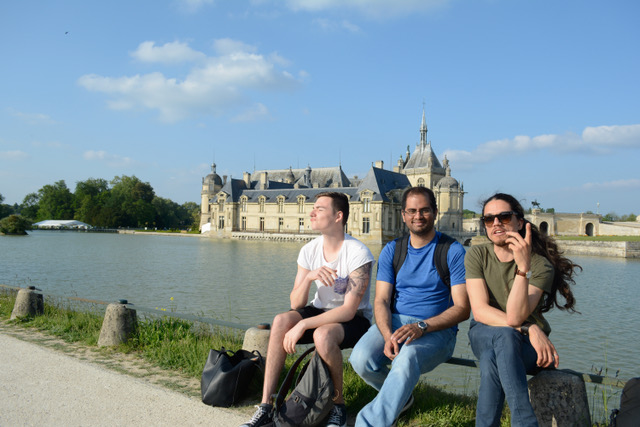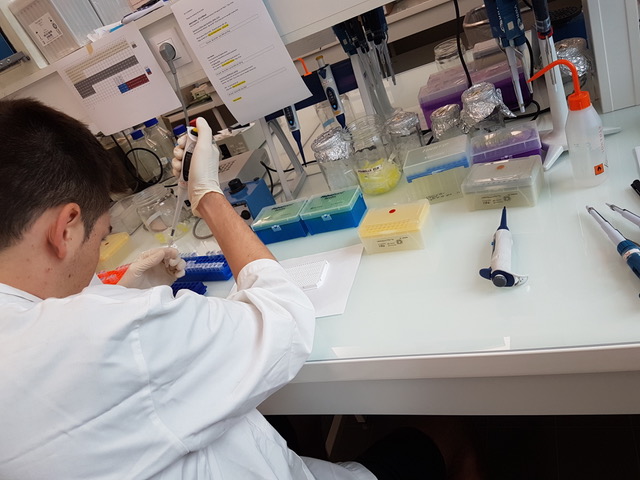For the “Applied Module at External Organizations” (AMEO), Ecotox students complete an eight-week internship at an external university, governmental or industrial research institute. In this post, Manuel Ayala-Velázquez reports on his internship at the Université Pierre et Marie-Curie (UPMC), now Sorbonne Université.
The Boulevard Saint-Germain, Paris, seven in the morning, in November 2018. You have been walking from Notre-Dame after leaving the Metro on this clear Monday morning of May. This ‘surface world’ is placider than the Metro underworld, where people rush to work. Everyone there is immersed in their minds, some people driving e-scooters and even e-unicycles, some others just walking through the Parisian Hadesian labyrinths. Life is different up and away from the Metro, calmer.

And then there is… you, a Master’s student that just crossed Petit-Pont. You stopped there and imagined that picturesque view to the cathedral with the emblematic bouquinistes along the Seine, as portrayed in the typical paintings many years ago. To the south-east, you saw a tall bluish tower. That’s where you have to go, so you relax as it seems difficult to get lost. From there, a pleasant stroll takes you to the Jardin du Luxembourg and then to the Jardin des Plantes.
Then, you enter Jussieu Campus. You smile in desperation while being confused (not for the last time) by the many identical buildings that surround the tall blue tower that you saw before. You eventually find your way and walk to meet with the laboratory team of the iEES Paris (Institut d’Écologie et des Sciences de l’Environnement de Paris). Ten in the morning and you finally practice your rusty French: Bonjour!
That’s one way how we, three M.Sc. Ecotoxicology students started our eight-week AMEO internships at the Université Pierre et Marie-Curie, now Sorbonne Université. David Mathura worked on a bioinformatics project, whereas Eric Bollinger and Manuel Ayala-Velázquez worked in molecular biology, testing potential endocrine distruptors. Our supervisors were Dr. Thomas Chertemps, (IGE) Françoise Bozzolan, Dr. Nicolas Durand and Dr. David Siaussat.

Eric and Manuel obtained experience on the scientific discussion of the statistical significance of gene expression tests to evaluate endocrine disrupting effects of various substances. They both gained practice with molecular biology laboratory equipment and conditions by utilising, among others, laboratory incubators, ultra-low temperature freezers, cooling and normal centrifuges, binocular microscopes, vortices, biophotometers, fume hoods, thermal cyclers and a qPCR LightCycler 480.
Activities included:
- Cells Count and Medium Renewal for Schneider 2 cells (Drosophila melanogaster)
- RNA Extraction and concentration measured by biophotometry
- Reverse transcription polymerase chain reaction (RT-PCR) and Electrophoresis
- qPCR calibration and run and Mean Normalized Analysis
Eric wrote a statistical significance analysis script on R for gene expression, whilst Manuel wrote a Laboratory Protocol on the aforementioned procedures.
The students would like to communicate their thankfulness to the aforementioned supervisors, to our coordinator in Landau, Dr. Brühl, to the International Office at Campus Landau for the support with the ERASMUS+ program, and to the program itself.
